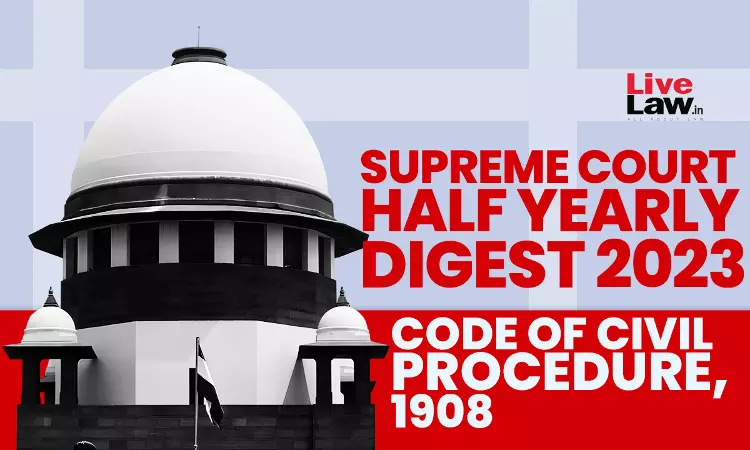Supreme Court Half Yearly Digest 2023 -Code Of Civil Procedure, 1908
LIVELAW NEWS NETWORK
20 Aug 2023 10:41 AM IST

Next Story
20 Aug 2023 10:41 AM IST
Section 10 - Stay of SuitCode of Civil Procedure, 1908; Section 10 - Stay of Suit - By virtue of Section 10 CPC, a Court is prohibited from proceeding with trial of any suit in which the matter in issue is also directly and substantially in issue in a previously instituted suit, of course, subject to other conditions mentioned therein. The object of the prohibition contained in Section 10 CPC...
